In Zurich, Syrians mobilise in bid to boost mental health
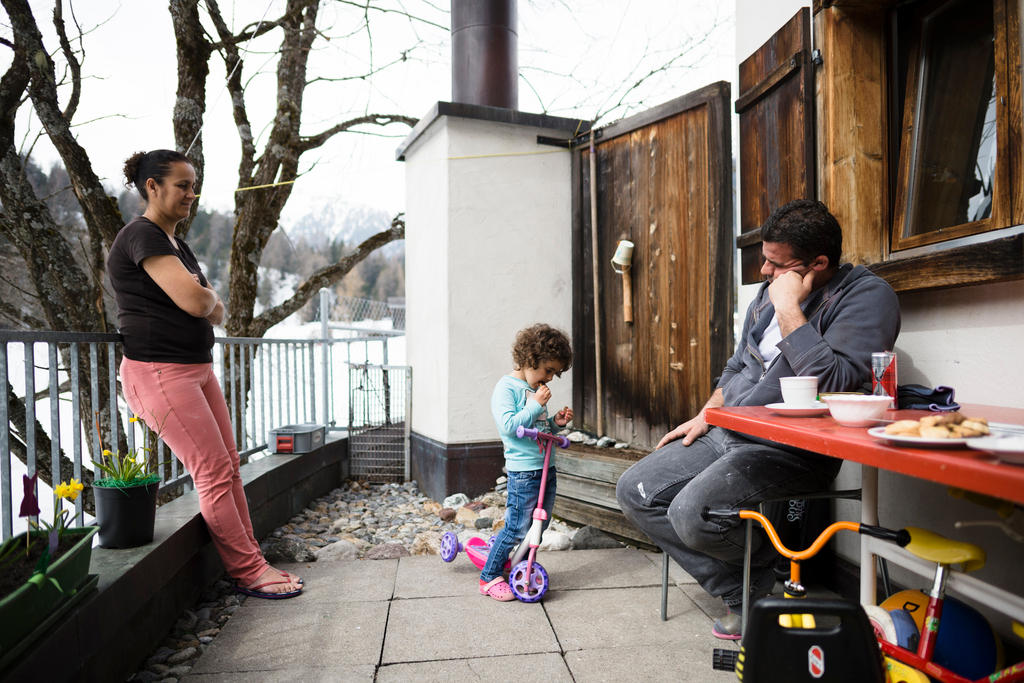
The men and women gathered in a spartan room are a moving reminder of the vitality and diversity of Syrian society when the country was blooming rather than exploding.
The men sport casual to semi-formal clothes. Veiled women sit across women in jeans and tank tops. Political and religious views have been left at the door. The common denominator here is a shared drive to help refugees whose struggle to integrate into Switzerland is complicated by unaddressed psychological issues rooted in war trauma.
They are part of Switzerland’s first batch of peer-to-peer Syrian counsellors being trained under the STRENGTHS Project. Among them is Usamah Shelleh, a 37-year-old former electrical engineer, who has high hopes and a contagious sense of purpose.
“Syrians have a lot of problems with integration in Switzerland,” he told swissinfo.ch in September. “By attending this programme, I feel that I can do something for the Syrian people, help the Syrian people with integration and solving the problems they have. Because I am one of them, I can feel what they feel.”
For asylum-seekers and refugees in Switzerland, challenges such as language acquisition, cultural barriers, finding work or achieving family reunification tend to take precedence over psychological self-care. But many carry heavy burdens that can slow down their journey of integration and lead to serious breakdowns.
Trauma – usually multiple traumas – are a common thread of the Syrian experience.
In the wake of the 2015 refugee influx, European countries have been struggling with a lack of Arabic-speaking mental health professionals to provide support on the scale that is needed. Switzerland, a high-income country that took in relatively modest numbers of Syrian asylum-seekers compared to its neighbors, is no exception.
The STRENGTHS project External linkis teaching Syrian refugees to provide a mental health intervention called Problem Management+ (PM+)External link. An earlier version of its curriculum, which was developed by the World Health OrganizationExternal link, was tested with displaced populations in Pakistan and survivors of gender-based violence in Kenya and proved to be effective.
Tackling common mental disorders
In 2017, the wheels were set in motion to try something similar with Syrian refugees in the European context. The programme is not designed to overcome a single disorder but tackles instead the symptoms of common mental disorders – including anxiety, depression and PTSD (post-traumatic stress disorder).
“That’s the thing about PM+ psychology,” says psychologist Mahmoud Hemmo, who was born and raised in Germany and is of Palestinian heritage. “You go through a crisis, you don’t have doctors and psychologists, what do you do? You can train this very fast, with many people, and they can spread it.”
In Zurich, the trainees are learning clinical skills and standards, as well as four core strategies: problem management, stress management, behavioral activation, building personal strength and social support. None of them have a background in psychology or medicine but they apply themselves whole heartedly during scenario-based exercises.
Their follow-up discussions are centered on questions ranging from how to maintain professional boundaries and deflect overly personal or political questions, to how to show empathy without getting swept up in another person’s sadness, overcoming an untimely urge to giggle, and resisting the temptation to dictate solutions.
“I am positively astonished because we have a group that doesn’t know each other, whose backgrounds are in conflict, but the dynamics between these people are very constructive and positive,” Hemmo tells swissinfo.ch.
Participation was contingent on having a university degree – or 12 years of study at a minimum –and good knowledge of either English or German. Trainees are in many ways the lucky ones, refugees who have been able to find a way forward in Switzerland thanks to their personal adaptability, prior education and language skills.
There are 68.5 million displaced people worldwide as a result of conflict, persecution and violence, according to the 2017 figures of the United Nations Refugee Agency, UNHCR. Experts say more data on how these experiences affect people’s mental health is needed to inform global public health policies.
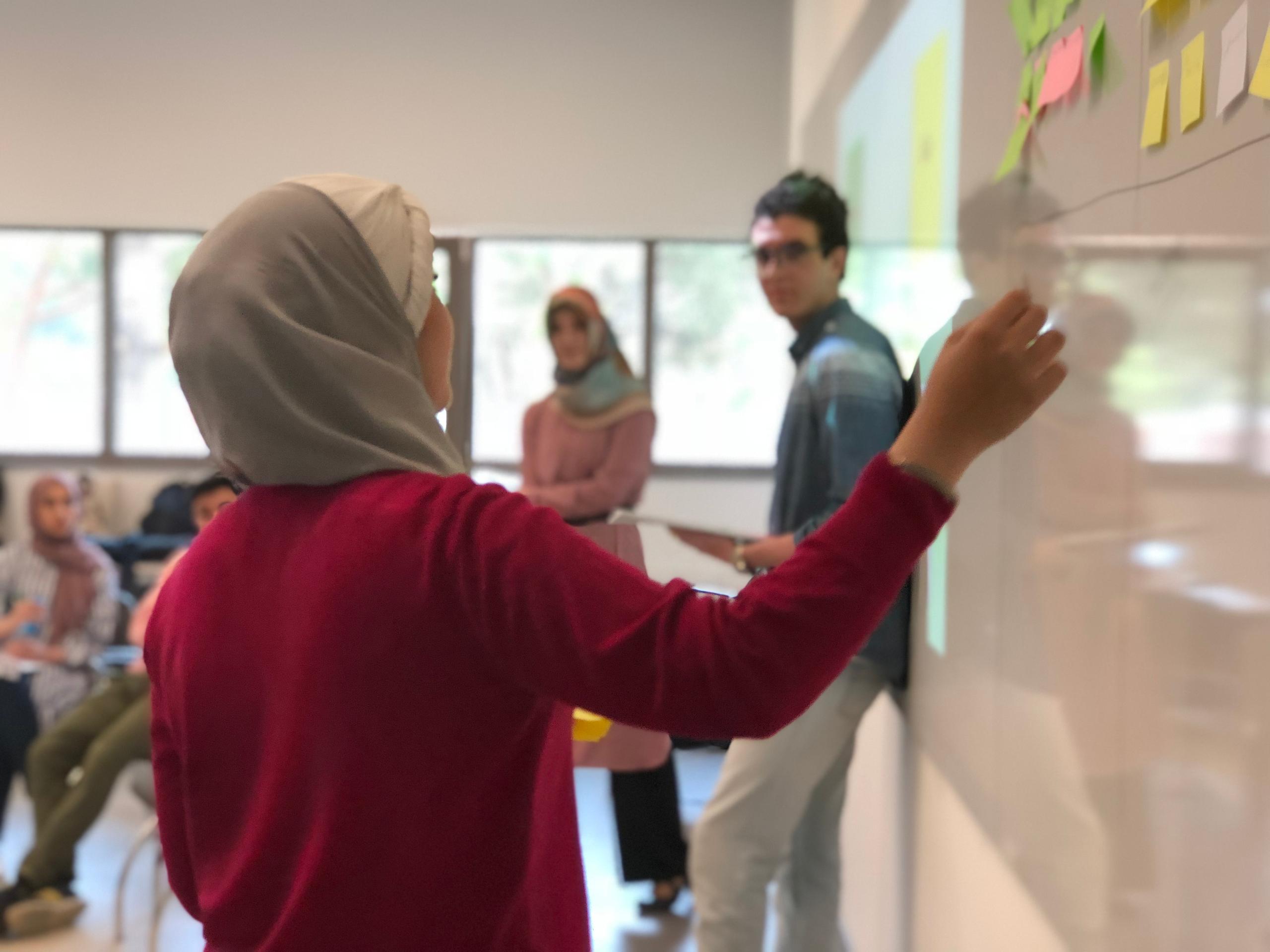
Testing scalable solutions
“The idea is to test and implement a low-intensity intervention in refugees which can be done by peers and by lay people,” says Dr. Naser Morina, senior research associate at the Department of Consultation-Liaison Psychiatry and Psychosomatic Medicine at the University Hospital ZurichExternal link. “This way we can scale up our interventions. We can reach more people with less cost.”
One challenge in Switzerland is the long wait times at the five specialized clinics focused on survivors of trauma and war. In Zurich, it can take up to a year to get an appointment at the outpatient clinic where Morina works. The clinic includes a unit for the treatment of victims of war and torture and another for the treatment of PTSD (post-traumatic stress disorder).
The STRENGTHS project seeks to determine whether low-intensity psychological interventions for traumatized communities are effective in high income countries like Switzerland, the Netherlands and Germany. The programme is also being tested in Middle Eastern countries using different formats, such as group sessions and even online.
In Switzerland, 80 Syrians are taking part in the pilot phase. Forty will serve as the control group and the other forty will go through five sessions of PM+ training. There will be an initial personal assessment, one after the intervention, followed by a control at three months and a final evaluation at the end of the year. Comparing the outcomes between the two groups will help establish the efficacity of this intervention.
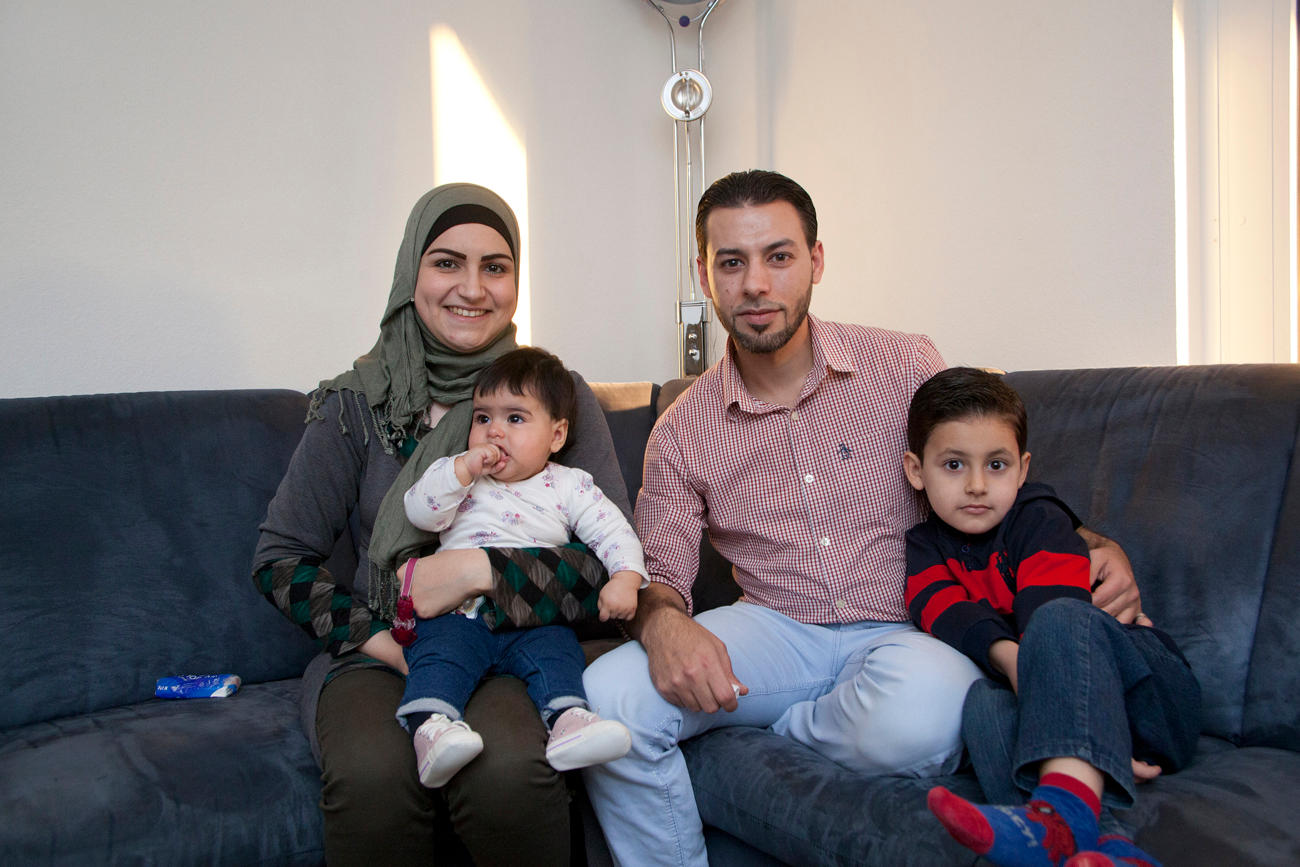
More
Syrian refugees ‘resettle in’ to Switzerland
Traumatic experiences
Syrians who made it to Switzerland after 2011 are likely to have experienced displacement multiple times before leaving their war-torn nation. Those from opposition areas have often lost family members either to bombs or enforced disappearance by the Syrian regime. Many have a deep distrust of authority figures.
Although a minority made it to Europe by plane, the majority risked their lives in harrowing journeys across the Mediterranean Sea. On arrival, it is easy for asylum-seekers and refugees who have suffered severe traumas or torture to slip through the cracks. A general practitioner might not automatically make the link between physical aches and psychological problems.
Complicating matters, psychologist and legal experts note that traumatized individuals are unlikely to recite their full experiences on the first encounter with local authorities, usually due to a lack of trust rooted in a negative experience of authorities back home, or fear of retriggering those traumatic emotions.
Trauma might also lead to memory gaps or inconsistencies that might make their asylum claims less credible. Faltering narratives might be taken as a sign of incredibility by the authorities and someone who can’t recount traumatic experiences clearly could have that play against them during asylum proceedings.
Hurdles to getting help
The system is not designed for a person who might need multiple sessions or pauses to feel comfortable sharing deeply troubling or delicate stories.
“According to the Swiss Asylum Act and its administrative regulations, there are no special procedural provisions foreseen for traumatized applicants,” says Muriel Trummer of Amnesty International Switzerland. “Only in the case of concrete indications to gender-based violence does the applicant have the right to be heard by a team of the same sex.”
Switzerland does not follow the so-called Istanbul Protocol, which puts forward international legal standards and sets out specific guidelines on how to conduct effective legal and medical investigations into allegations of torture and ill-treatment. “For asylum seekers it is difficult to have access to psychological support unless they are so clearly traumatized that they have to go to a clinic,” says Trummer.
How and when a traumatic experience is relayed can influence the outcome of an asylum claim. But with European countries invoking the Dublin procedure to pass refugees back and forth, it can be years before the asylum claim is admitted and its validity assessed by country. This can be retraumatizing and years of uncertainty also take their toll.
“The Swiss Dublin practice is particularly brutal and it doesn’t take into account the specific and individualized situation of many asylum seekers,” notes Boris Wijkström, who works at the Centre Suisse pour la Défense des Droits des Migrants (CSDMExternal link).
“Often with traumatized people you don’t want to speak about your trauma to the first official you meet in the country of asylum,” he notes. “What these people end up saying is that they have back pain or headaches. They somaticize their problem.”
Morina concurs this is a common problem. He estimates about one in two refugees need psychological support. By enlisting refugees to boost mental health in their communities, he hopes experts like him will be freed up to focus on serious cases. “This type of task shifting will allow us to help more people,” he says.
The STRENGHTS project is funded by a grant from the European Union’s Horizon 2020 Research and Innovation programme.External link The Swiss part is funded by the State Secretariat for Education, Research and Innovation (SERI)External link.

In compliance with the JTI standards
More: SWI swissinfo.ch certified by the Journalism Trust Initiative
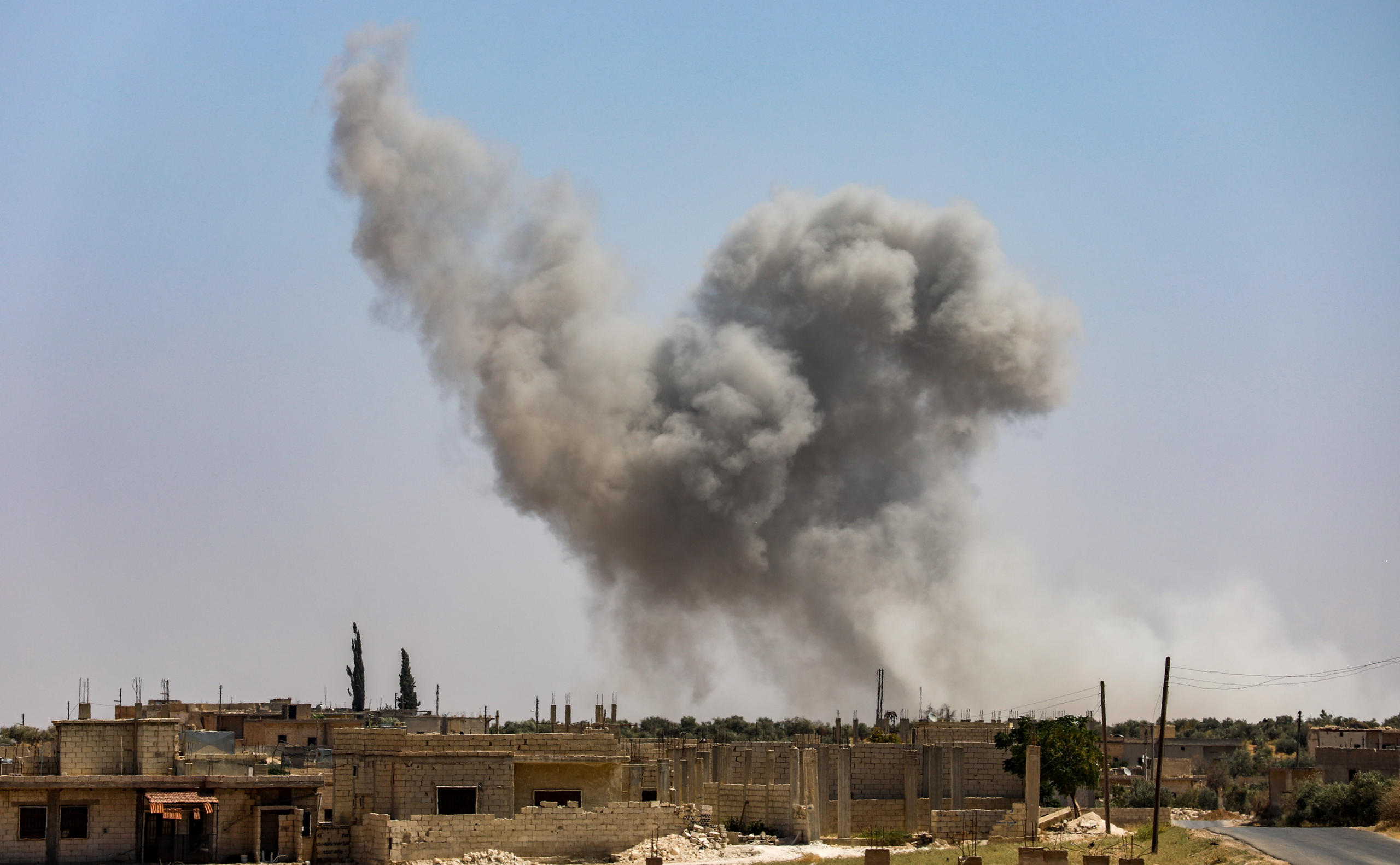
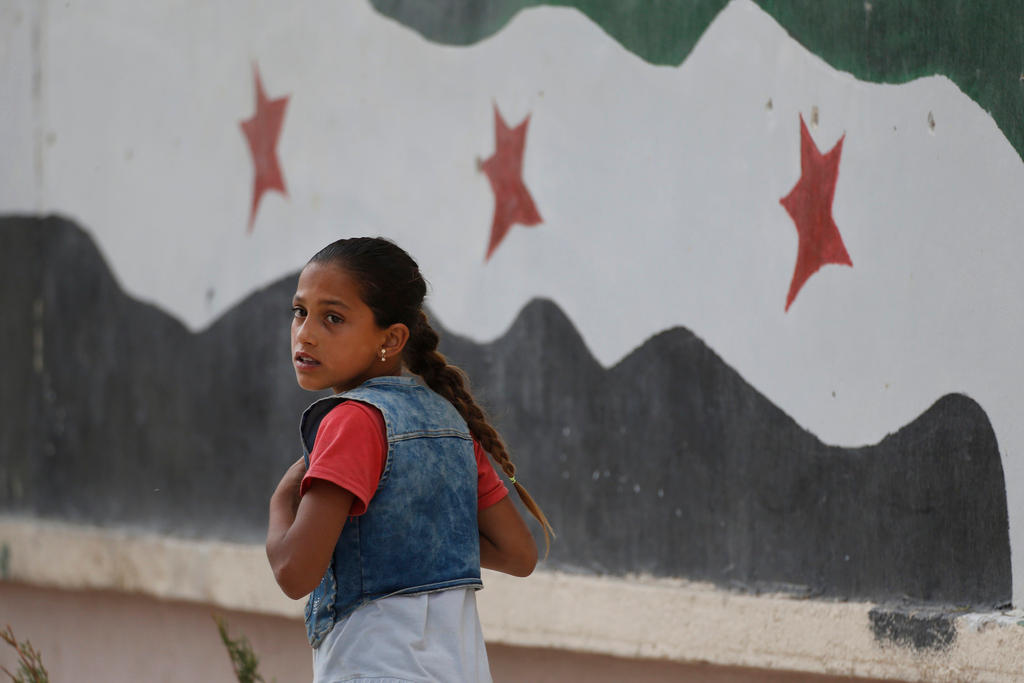
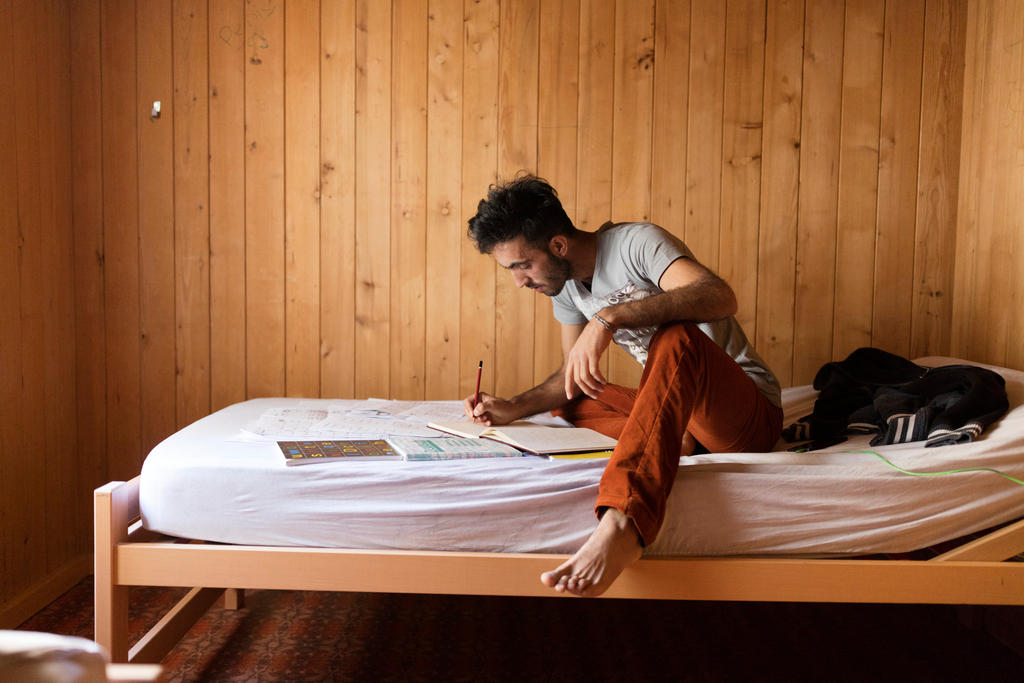
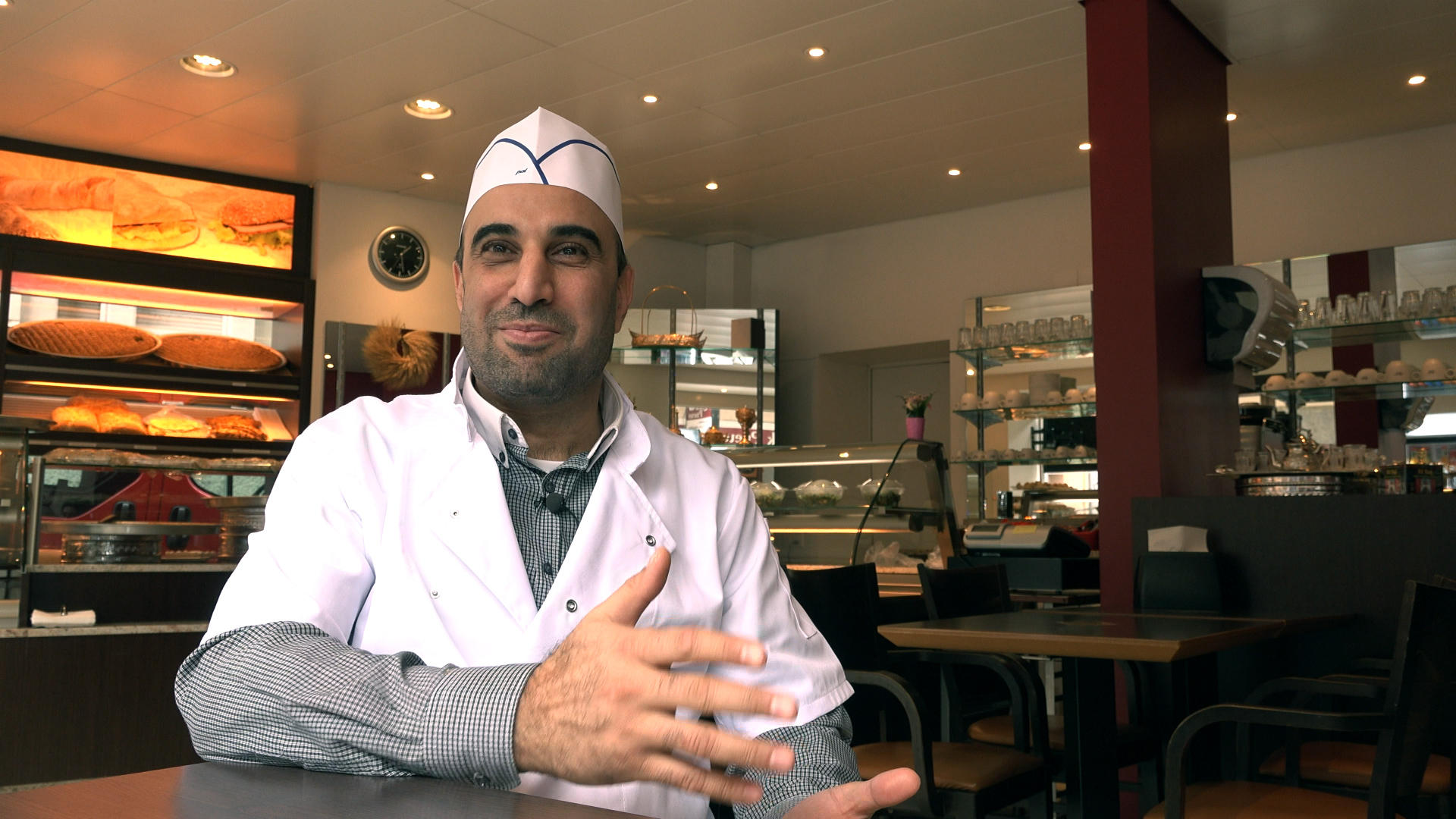
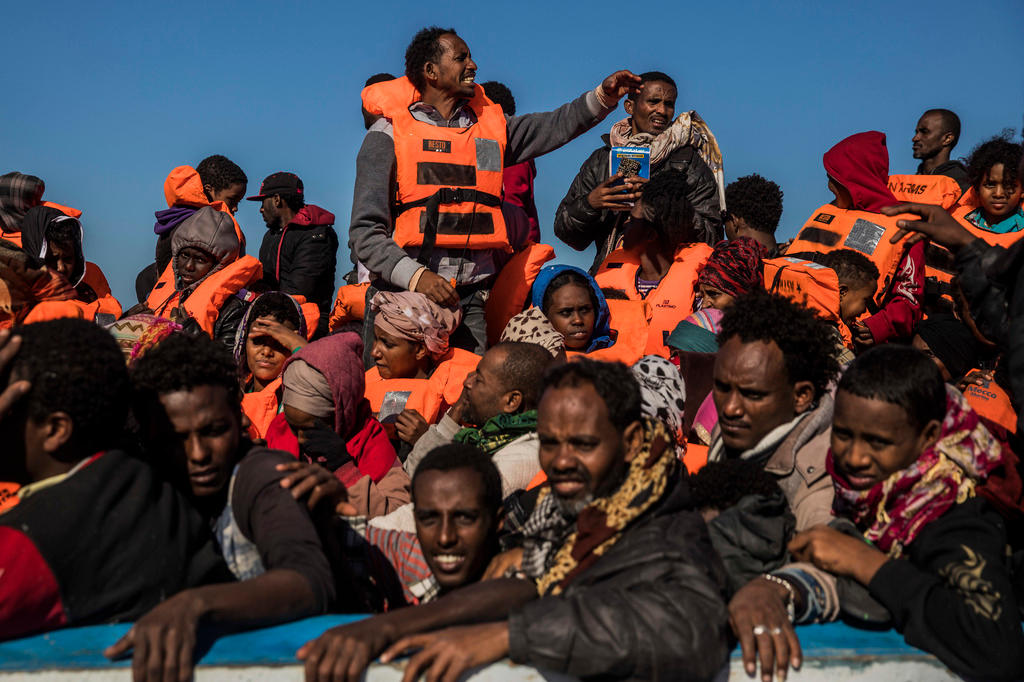

You can find an overview of ongoing debates with our journalists here. Please join us!
If you want to start a conversation about a topic raised in this article or want to report factual errors, email us at english@swissinfo.ch.